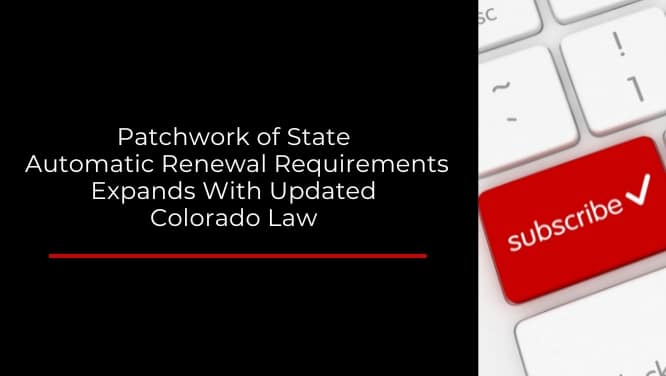How Businesses Can Navigate Top Legal Issues During COVID-19

- Dan Fredrickson
- |
- April 2, 2020
Businesses are facing significant challenges and uncertainty in light of the COVID-19 pandemic. Several new laws provide relief for businesses and employees, but businesses must still consider pre-existing legal and contractual factors during the current circumstances. The following guide gives businesses a solid foundation for navigating some of the most common COVID-19 related legal issues, including failures to perform, supply chain disruption, leasing concerns, and personnel issues.
Guidance on the federal legislation and stimulus
Two new federal laws have been passed to protect and provide some relief for businesses and employees. As with every new law passed, many companies and employers grapple with where to start to understand the laws and how they apply to their businesses. In this case, both laws provide near-term relief that companies should be aware of for COVID-19-related matters.
Families First Coronavirus Response Act (FFCRA)
The FFCRA took effect April 1, 2020, and requires employers to provide paid leave for certain employees related to the coronavirus pandemic.
The FFCRA applies to business with less than 500 employees, and includes up to two weeks of paid sick leave (full pay for the employee’s own care, 2/3 pay for the employee’s family care) for illness, quarantine or school closures; up to 12 weeks of paid Family and Medical Leave Act (FMLA) leave for school closures (10 days unpaid and then up to 10 weeks at 2/3 pay); a payroll tax credit to make the paid leave provisions less burdensome for small businesses; and a group health plan benefit mandate to cover diagnostic testing-related services for COVID-19.
While the FFCRA presents a challenge to small businesses, impacted businesses can take immediate advantage of the payroll tax credits by withholding and retaining access to funds that would otherwise be paid as payroll taxes – whether relating to the impacted employee or non-impacted employees. If those withheld and retained payroll taxes are insufficient to cover the amounts paid by the employer under the FFCRA, the employer can request a rebate for the difference, which the IRS has committed to provide within two weeks or less.
It’s important to note that each covered employer must post this FFCRA notice in a conspicuous place at its premises. If its premises are closed, we recommend providing it via email to employees.
Additional information on the FFCRA is available here.
Coronavirus Aid, Relief and Economic Security (CARES) Act and the Paycheck Protection Program (PPP)
Congress recently passed, and the President signed, The CARES Act to provide an economic stimulus to businesses and employees. The law provides “paycheck protection” loans to businesses with under 500 people as well as sole proprietors and independent contractors to help cover payroll costs, healthcare, rent, utilities, and other allowed expenses. The goal is to incentivize employers to keep or rehire workers and use the loan amounts to pay payroll and other expenses. We outlined details on what the Paycheck Protection Program includes and how to apply.
If companies do not lay off employees during this period, the loans or some portion of them will be forgiven. The CARES Act applies retroactively to February 15, 2020, so employers can rehire any employees that were laid off since that time and take advantage of the incentives offered under the CARES Act.
The CARES Act also provides a new “employee retention tax credit” that may be used by businesses that do not receive the “paycheck protection” loans and meet additional criteria.
Expanded unemployment benefits are available under the CARES Act to cover those who traditionally are not eligible to receive such benefits, including self-employed and independent contractors, people seeking part-time employment, those who do not have sufficient work history and more.
More information about CARES Act and the PPP is available here.
Does force majeure apply to COVID-19?
Force majeure is a contractual defense that allows a party to avoid liability for its inability to perform contractual obligations due to certain events outside of its control, known as force majeure events. Many businesses are wondering how force majeure clauses may impact them, whether they are seeking to enforce or excuse performance, particularly pertaining to customer contracts, their supply chain, service providers, and other contractual commitments.
What constitutes a force majeure event is determined on a case-by-case basis and depends on the terms of the relevant contract, applicable law and other relevant facts. In many contracts, a force majeure clause describes the specific circumstances that qualify as a force majeure event, and the process by which a party can seek performance relief under the clause. The following is a fairly broad and somewhat typical force majeure clause:
Neither party shall be liable for any breach of the Agreement, or for any delay or failure of performance, resulting from any cause beyond that party’s reasonable control, including the weather, civil disturbances, acts of civil or military authorities, or acts of war or terrorism (each a “Force Majeure Event”). The party claiming relief under this Section shall promptly notify the other party in writing, but in no event later than 10 calendar days of the occurrence of the Force Majeure Event.
Businesses need to know whether the COVID-19 pandemic itself or the resulting governmental actions (such as shelter-in-place or stay-at-home orders, quarantine requirements, or forced closures), will constitute a force majeure event that will allow that business to excuse its non-performance, or will enable any of its suppliers or other partners to excuse their non-performance. Regarding contracts in which you have the obligation to pay, review carefully to see if payment obligations are excused; oftentimes payment obligations are not excused by force majeure events.
Courts tend to review force majeure clauses very narrowly and strictly, so if the force majeure clause is drafted narrowly, for example by listing the specific scenarios qualifying as force majeure events, it is less likely that a company is going to be able to get relief under the clause unless the event or circumstance causing non-performance is specifically listed. In most cases, force majeure won’t apply if performance is merely made difficult due to an excused event – only if performance is nearly impossible or illegal. Additionally, a party affected by the force majeure event often has to use reasonable efforts to mitigate or remove the obstacle in order to be excused from performance.
Businesses can take the following proactive steps to address their risk and potential force majeure triggers:
- Review and assess the performance risk associated with all active contracts, including contracts with customers, suppliers, and service providers. If a company anticipates that a key supplier may not be able to perform based on COVID-19 and the related governmental restrictions, the company should consider whether its supplier’s non-performance would place the company’s own performance under any of its other contracts at risk.
- Companies should proactively consider whether there are alternative options to meet contractual obligations to avoid being in breach of contract. For example, even if a supplier is relieved of its performance due to force majeure, your business may not necessarily be relieved. You may be required to find an alternate supplier, even if the alternative is expensive or cost prohibitive. So, force majeure is not a get-out-of-jail-free card, but it is a valuable tool to have in your back pocket if it is well-drafted and applicable.
- Communicate with your contracting parties early and often, and document all actions. Start by understanding where there may be risk in your supply chain. If your business may be at risk and you may not be able to pay suppliers, work with legal counsel to let your suppliers know as soon as possible. Keep in mind that most force majeure clauses have notice requirements mandating prompt communication. Document your actions to show you’ve looked for reasonable alternatives; or, if there are none, make sure you have documentation to show your attempts at finding reasonable alternatives.
How to handle leasing concerns and rent relief
In many cases, leases are a business’s top expense, just below personnel. As many companies examine their expenses, especially in light of widespread stay-at-home orders, many are wondering why they’re paying for office or manufacturing space and how to get rent relief.
Businesses may be surprised to know that sophisticated landlords often include provisions in leases that prohibit tenants from abandoning the premises for a specified period of time (often a week or less). In today’s situation, shelter-in-place and stay-at-home orders could trigger a breach of contract with these types of provisions.
Generally, it’s smart to take a practical, reasonable approach and think about the concerns on behalf of both parties. Since this is an unprecedented situation impacting everyone, many landlords are being more flexible about working through issues that result from COVID-19. Consider having a conversation with your landlord to find a mutual solution. Landlords may be willing to lower or defer payments for a period of time (even if they have to be made up later), which would be a better scenario for a landlord than losing a tenant during an economic downturn. Document any new or temporary arrangement in writing.
Similarly, a lease may have a force majeure clause in it that provides performance relief in certain instances, such as abandoning the premises or failures to comply with other lease requirements. However, keep in mind that payment obligations are rarely relieved under force majeure by itself.
While some renters may gamble on not paying with the argument that courts are shut down and many landlords are putting evictions on hold, that is short-sighted because a breach won’t go away when the situation normalizes and businesses could incur contract damages and interest on payments. Furthermore, leases often contain harsh fees for late payments, interest obligations, and even rights for the landlord to terminate the lease and accelerate payment of the remainder of the lease payments that would be due through the end of the lease term.
There is little harm in raising the issue with your landlord, and a frank conversation now may save significant expense later.
Will business interruption insurance help?
Many businesses are asking whether they may be able to find relief in their business insurance policies – most typically under General Commercial Liability, Professional Liability, and Business Interruption Policies. Ultimately, the relief that businesses are entitled to will be specific to how insurance policies are written and any related and ensuing laws.
General Commercial Liability and Professional Liability coverages are not likely to provide direct relief. In most cases, these policies cover claims brought by third parties against the policyholder. However, in the event that a business fails to perform as a result of COVID-19 and a claim is brought against it, these policies may provide relief.
Business Interruption Policies typically cover only losses resulting from property damage – which would exclude most interruption resulting from COVID-19. However, there are instances in which contamination of physical property (as opposed to mandated closures to prevent contamination) may constitute property damage for insurance purposes.
Importantly, even if a business can claim physical property damage, there are critical exclusions that may apply. Specifically, in the aftermath of the SARS epidemic, many insurers began recognizing epidemics and pandemics as major risk factors for themselves and started expressly excluding coverage losses caused by epidemics and pandemics. These exclusions sometimes apply to either bacteria, viruses, or both – though if a policy only excludes bacteria the exclusion would not apply to COVID-19.
Several states have introduced legislation that would require insurers to retroactively cover business interruption claims related to COVID-19 despite the exclusions.
There are, of course, many other insurance policies that might apply to your specific situation, whether for supply chain, contingent business interruption, employer’s liability, or worker’s compensation. In all of these instances, we recommend working with your insurance agent to identify where you may have a covered loss.
How should businesses handle reductions in force?
Despite the stimulus programs passed in recent weeks, employers may still find it necessary to consider layoffs. With any reduction in force, employers should have a plan designed to ensure that the reduction in force achieves the necessary business goals and protects the business from a legal perspective. Particularly with respect to any group layoff, planning is key, and employers should review all applicable employment agreements, employee handbooks, collective-bargaining obligations, and other contracts or policies that may impact the reduction in force. Also consider whether a reduction in force may accelerate the vesting of an employee’s equity interests or bonus compensation.
The selection process used to choose which employees are laid off during a reduction in force is often the most heavily scrutinized aspect from a legal perspective. Employers should obviously comply with all applicable laws and regulations when making these choices, and should document their selection criteria in order to avoid the appearance of discrimination against a particular class (whether age, race, sex, gender, etc.).
If an employer intends to offer severance, the severance should be provided in exchange for a release of claims against the employer. For the release to be effective, precise steps have to be followed, particularly with respect to group layoffs or employees over 40 years old.
In some cases, a reduction in force may trigger additional notice requirements under the Worker Adjustment Retraining and Notification (WARN Act).
With respect to any reduction in force, we recommend coordinating with counsel.
What to consider going forward
As we navigate this uncharted territory and economic uncertainty, there are several key learnings that can be applied going forward to protect and provide relief to businesses and employees. For example, in your upcoming contracts, take care to specify what happens in the event that performance is precluded due to stay-in-place orders or other mandatory public health orders. Pay attention to the fine print in insurance policies and factor that into risk analyses for your company. Working with experienced, business-focused legal counsel can help determine how best to protect your company and employees.
KO Law Firm will continue to update this article on a regular basis. Check back for the latest updates on pandemic-related legal issues.
Dan Fredrickson is a commercial partner at Koenig, Oelsner, Taylor, Schoenfeld & Gaddis PC (KO Law Firm), an innovative corporate and commercial law firm with a team of experienced lawyers and a practical, efficient, business-focused approach. Founded in 2003 on the philosophy that a different approach delivers better value, our business-first legal and industry expertise helps established brands and emerging companies achieve meaningful business outcomes. KO is headquartered in Denver and Boulder, Colo., and serves the software and SaaS, retail and manufacturing, professional services, energy, food, beverage and consumer goods, eCommerce and internet, healthcare and life science and ancillary cannabis industries. Reach Dan at [email protected].




